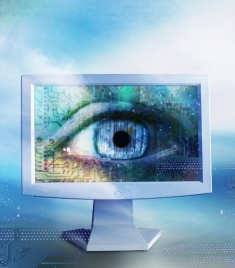
Computer systems are vital to the operations of any sized company. While employees PC’s and printers are important, typically the main “nuts and bolts” of the computer system are the servers, storage systems, network equipment, backup system, etc. that sit behind the scenes. This equipment houses the main functionality of the business by hosting the company’s line of business software, providing access to the Internet and other network resources, backing up the company’s data, etc. Because of the importance of these computer systems, companies typically invest significant amounts of money to ensure stability.
Monitoring these important systems is extremely important and is a key component of any computer system. Monitoring a computer system typically includes installing management software on a device that sends alerts to a System Administrator about any issues that the device may be experiencing. While the sheer importance of these systems is worth monitoring alone, security, data gathering and proactive response are additional reasons why to monitor a computer network.
One of the most important reasons for network monitoring is it allows a System Administrator to be proactive instead of reactive. Some companies chose to use the “break-fix” methodology which means that if something breaks, fix it then. This leads to extended outage times that companies cannot afford. Monitoring assists with alerting a System Administrator before something breaks and allows them to resolve an issue before it becomes an outage. For example, monitoring may alert a System Administrator that a hard drive in a server is degraded. The System Administrator is alerted of this and swaps out the degraded hard drive with a new one. Without monitoring, the degraded hard drive could turn into a failed hard drive causing an extended outage and possible data loss.
Strong computer system security is on the minds of most business executives these days as a company’s data is one of its most valuable assets. Businesses want to make sure that their data is stored in a secure, impenetrable location. Because of this, System Administrators work hard to make sure that their data can only be accessed by people who require access to it. This is done by implementing secure software and hardware systems that provide this functionality. However, people that attempt to access a company’s data that are not authorized to are always coming up with new techniques. Monitoring allows a System Administrator to ensure the security of a company’s data. Depending on the type of monitoring software used, the software may provide information about file access, network intrusion, etc. Having this information not only allows a System Administrator to halt any current security breaches but will allow them to work towards ensuring it doesn’t happen again.
A common misconception about monitoring is that it is needed for negative things; issues with equipment, security breaches, etc. While this is true, a stable computer system is not always experiencing these problems. Another benefit of computer system monitoring is data gathering. A good monitoring system may also retain historical information. This information allows a System Administrator to view trends about the performance of any given system. This can assist in decision making about additional resources or components that may be needed to ensure a more reliable system.
Monitoring a computer system is just as important as the system itself. Monitoring allows for proactive response, data security and data gathering and the overall good health of a computer system. While monitoring does not fix problems, it does lead to more stable and reliable computer systems.



